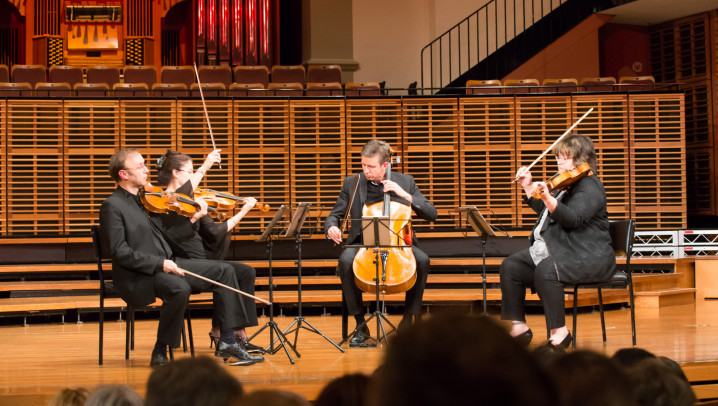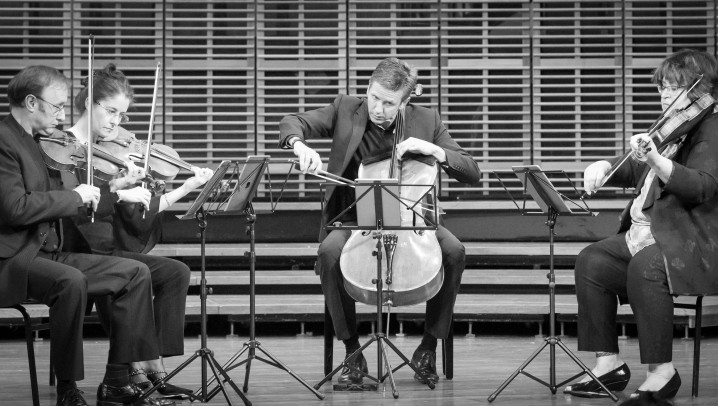
Vignettes and Masterpieces | Jewish composers and the string quartet
Australia's leading chamber ensemble, the Goldner String Quartet, perform the finale concert for the Sydney Out of the Shadows Festival.
| Genre | Concert performance |
|---|
Celebrating their 22nd season in 2017, the Goldner String Quartet is recognised as an Australian ensemble of international significance. Named after the Austrian Jewish refugee violist and founder of Musica Viva Australia, Richard Goldner, the quartet has been one of the Australian partner organisations for Performing the Jewish Archive since the very beginning of the project. Through their name, the ensemble acknowledges the vital contribution to cultural life in Australia made by refugees: musicians, entrepreneurs, and audiences.
Negotiations regarding repertoire for this concert were made over a course of 12 months. There were many considerations to take into account, including quality of repertoire, relevance to the project and the performance of rediscovered works or Australian premieres. The Quartet was eager to rehearse material that could be used for future performances. In the final agreement, we decided that the concert could be anchored with two complete quartets (one from the established literature and one from an emerging 'suppressed' voice), and the rest of the concert would be made up of vignettes: movements or short works pertaining to the subject matter of the Festival.
The two complete quartets were Mendelssohn's A minor quartet, Op. 13, and the Australian premiere of Mieczesław Weinberg’s 8th string quartet, Op. 66. Weinberg's reputation as a composer of note has been growing steadily in the past fifteen years, and Mendelssohn's string quartets are less frequently performed on the concert hall platform, so both seemed apt choices given the Festival’s focus.
The concert opened with Hans Krása’s Theme and Variations. Although Krása is viewed as one of the creative forces in Terezín, this work (and, in fact, his most famous composition, Brundibár) date prior to the Nazi invasion, and reflects the composer's studies with Albert Roussel and an affinity with Les Six.
The world premiere offering in the concert was the Intermezzo (3rd movement) of Wilhelm Grosz's String Quartet, Op. 2. Thought lost by the composer's family for over 70 years, the original manuscript was located in an obscure library in Europe.
Synagogue composers rarely make it onto the concert platform. Samuel Alman, often thought of as one of the very best British composers for the Synagogue, wrote his Ebraica Quartet in 1932. This Debussy-inspired work was sourced from the collection of Victor Tunkel. The final vignette in the program was the first movement (Andante) from Walter Wurzburger’s String Quartet No. 2, composed in 1944 during army service, possibly at the start of his enrolment at the Melba Conservatorium of Music in Melbourne. Both the Alman and Wurzburger receive their Australian premieres in this concert.
© 2017 Joseph Toltz







